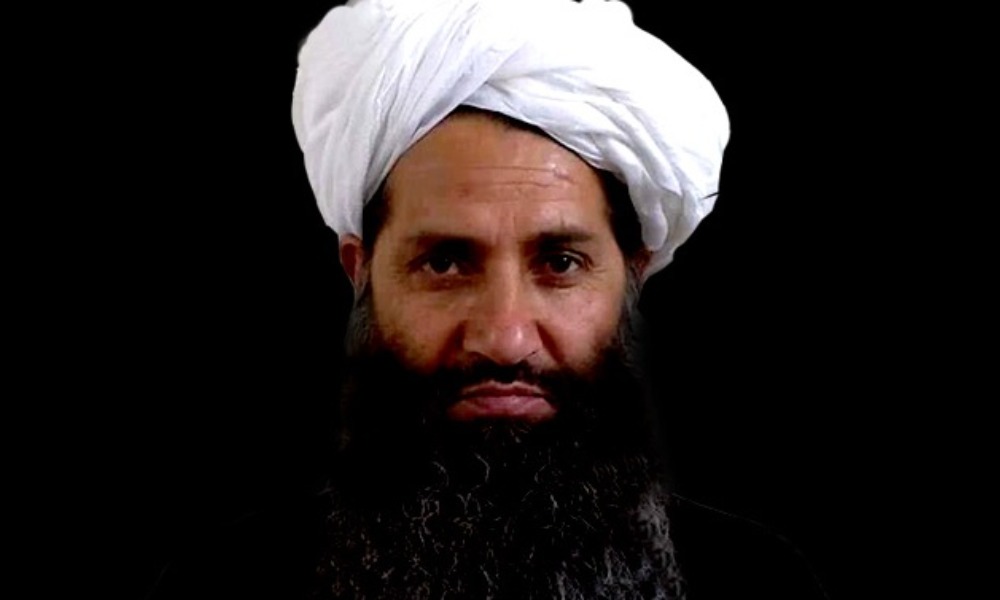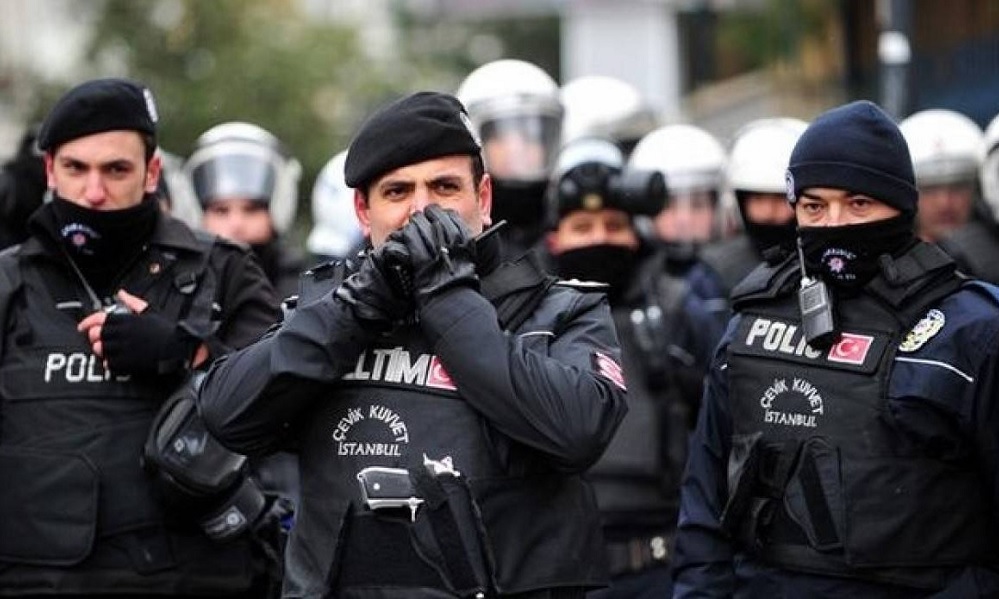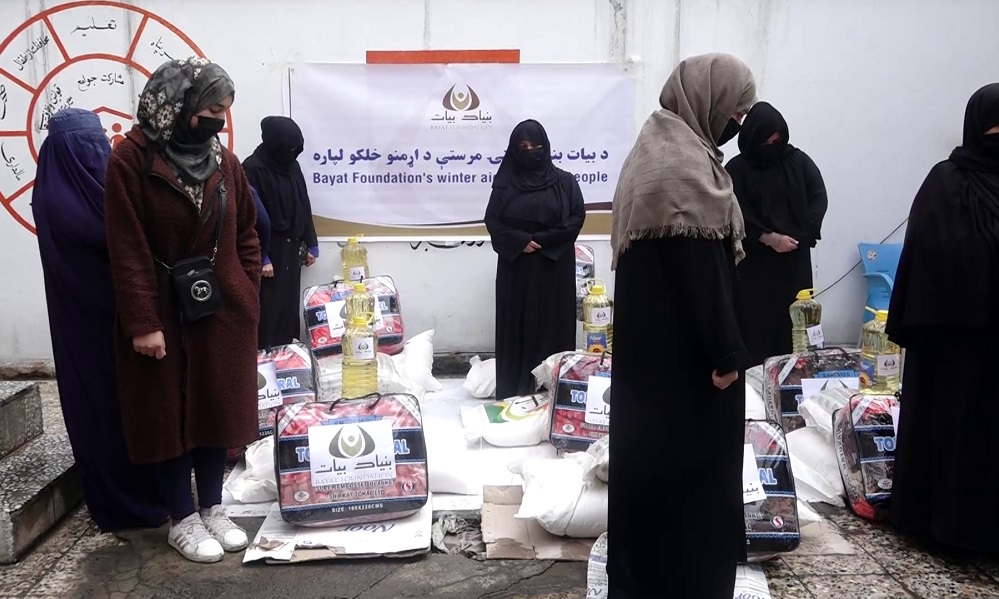Latest News
IEA leader calls for judicial punishments to be in line with Sharia law

Islamic Emirate of Afghanistan’s (IEA) supreme leader Mullah Haibatullah Akhundzada met judges in Kandahar and ordered them to carefully investigate cases of robbery, kidnapping and sedition and to implement Hudud if Sharia conditions are fulfilled.
Hudud punishment includes amputation, flogging and the death penalty.
The meeting took place in Kandahar on Saturday evening. Present at the meeting were the deputy chief of the IEA for the Supreme Court, the head of the military court, the Kandahar governor and other officials from courts in the southern zone, according to a statement released by the IEA on Sunday.
“The cases [involving] those charged with robbery, kidnapping and sedition should be assessed thoroughly,” Mujahid said, quoting Akhundzada.
“You are responsible to implement the Hudud and Qisas (death penalty),” Akhundzada said adding “because this is the order of Sharia and it is my order, too, and it is an obligation.”
The IEA has reintroduced Sharia law and restrictions in the country since coming into power in August last year.
Three months ago, the IEA’s supreme leader stated that the government would deal with the international community in line with Sharia law.
During a meeting attended by about 3,000 scholars and IEA officials in Kandahar in August this year, Akhundzada stated: “We will deal with the international community as per Islamic Sharia …if Sharia doesn’t allow it, we will not deal with any other country.”
Restrictions on women in particular have continued to be imposed. However, on Sunday Bilal Karimi, a deputy spokesman for the Islamic Emirate, said that the IEA respects all rights of women in accordance with Islamic principles.
This came in response to remarks by Rina Amiri, the US special representative for Afghan women, that the rights of women and girls are protected now more than ever in the country and that the Islamic Emirate respects all their rights in accordance with Islamic Sharia.
“The Islamic Emirate is committed to protecting all the rights of women within the framework of Islam, and all the rights that are for them in Islam will be protected,” said Karimi.
This comes after the IEA’s Ministry of Vice and Virtue last week banned women from entering amusement parks, sports clubs and public baths.
Latest News
Turkish intelligence captures a Daesh member near the Durand Line

Turkish intelligence agents have captured a senior member of Daesh near the Durand Line, reportedly preventing planned suicide attacks in Turkey and other countries, according to Turkey’s state-run Anadolu Agency on Monday.
The suspect, identified as Mehmet Goren, is a Turkish citizen. He was apprehended during a covert operation and transferred to Turkey. Details on the timing of the operation or the involvement of Afghan and Pakistani authorities were not disclosed.
According to the report, Goren had risen through the ranks of Daesh and was allegedly tasked with carrying out suicide bombings in Turkey, Pakistan, Afghanistan, and Europe.
Daesh has a history of deadly attacks in Turkey, including the January 1, 2017 shooting at an Istanbul nightclub that killed 39 people.
Anadolu Agency reported that Goren’s arrest also provided intelligence on the group’s recruitment strategies and planned activities.
Latest News
Dozens of needy families in Kabul receive winter aid from Bayat Foundation

Dozens of needy families in Kabul’s fifth district have received essential winter assistance from the Bayat Foundation, as part of ongoing efforts to ease hardship during the cold season and worsening economic conditions.
According to foundation officials, the aid package includes staple food items such as flour, rice, and cooking oil, along with warm blankets to help families cope with freezing temperatures. Haji Mohammad Ismail, Deputy Head of Bayat Foundation, said the distribution began in Kabul and will soon be expanded to other provinces.
“Our assistance includes flour, rice, cooking oil, and blankets,” Ismail said. “Today, we started distributing these items in Kabul’s fifth district, and God willing, the aid will reach other provinces in the near future.”
Afghanistan continues to face widespread poverty, unemployment, and food insecurity, with many families struggling to meet basic needs, particularly during winter when access to work and heating becomes more difficult.Humanitarian organizations and charitable foundations have stepped up relief efforts to support those most affected.
Beneficiaries welcomed the assistance, describing it as a lifeline. “May God bless you for helping the poor. We had nothing and no work,” said one recipient. Another added, “Thank you for your help. Our flour was almost finished.”
Bayat Foundation officials stressed that winter aid distributions will continue in Kabul and other provinces in the coming days, as part of their broader commitment to supporting needy families across the country.
Latest News
Nearly seven million Afghan refugees return home since Islamic Emirate’s takeover

Since the Islamic Emirate came to power, approximately 6.8 million Afghans have returned home, either voluntarily or forcibly, from neighboring countries and other nations, according to the Minister of Refugees and Repatriation.
Mawlawi Abdul Kabir, speaking at a meeting on finalizing a draft plan for a permanent migration solution in Afghanistan, added that 1.3 million Afghans have been internally displaced due to natural disasters during the same period.
With winter approaching, widespread poverty and severe cold are threatening thousands of lives. Meanwhile, the forced expulsion of Afghan migrants from neighboring countries, particularly Iran and Pakistan, continues.
The Islamic Emirate has repeatedly urged neighboring states to allow migrants to return voluntarily. According to UNHCR, over two million Afghans have returned from Iran and Pakistan since the start of 2025.
-

 Latest News3 days ago
Latest News3 days agoAfghan border forces prevent illegal entry of hundreds into Iran
-

 Latest News3 days ago
Latest News3 days agoPakistan summons Afghan diplomat over deadly attack in North Waziristan
-

 Latest News2 days ago
Latest News2 days agoAfghan health minister calls for medical cooperation between Kabul and New Delhi
-

 Latest News1 day ago
Latest News1 day agoAfghanistan signs 30-year deal for marble mining in Daikundi
-

 Latest News3 days ago
Latest News3 days agoJapan allocates nearly $20 million in humanitarian aid for Afghanistan
-

 Latest News3 days ago
Latest News3 days agoKarzai urges reopening of girls’ schools and universities for Afghanistan’s bright future
-

 Health5 days ago
Health5 days agoAfghanistan seeks India’s support in standardizing traditional medicine
-

 World5 days ago
World5 days agoUS readies new Russia sanctions if Putin rejects peace deal, Bloomberg News reports
























